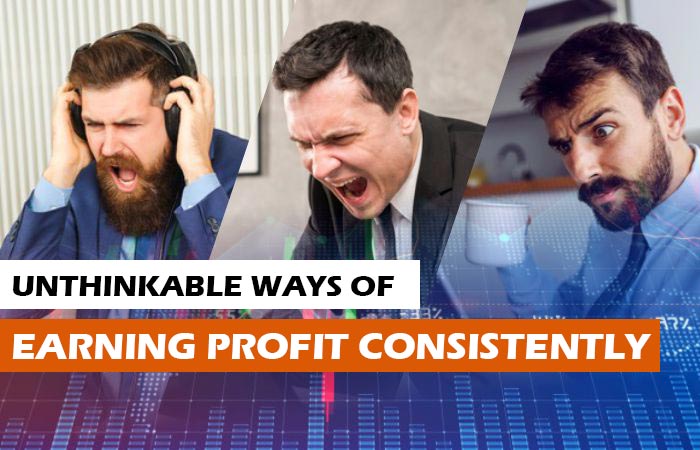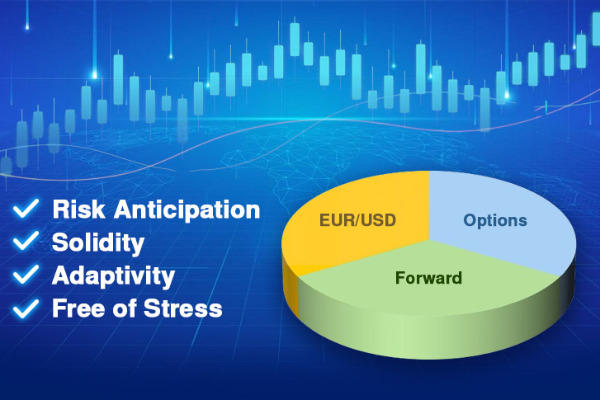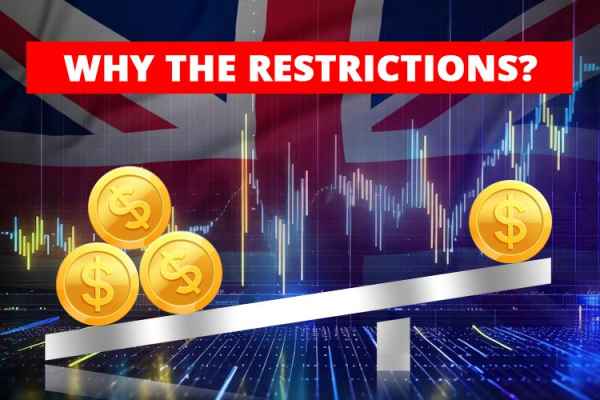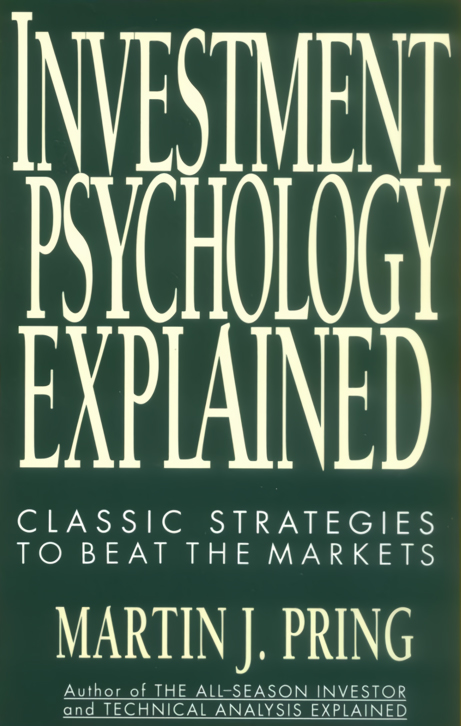Have you ever wondered what makes a trader successful when most traders end up losing money? Turns out there are surprising things you need to learn about successful forex traders.
Many traders decided to participate in the forex market to earn high profits and be successful. As the largest financial market in existence, surely there are many areas and opportunities to be explored in the forex market. However, the truth is that not all traders can succeed.
In fact, some publications quote failure rates in the forex industry can be as high as 90% or even 95%. That means, there are more people suffering from failures than those who are celebrating their victories. Then what sets the 5-10% apart? What makes them able to succeed in the midst of losing trades?

Contents
The Meaning of Success
First off, it's important to define "success" in forex trading. Usually, new traders would enter the market expecting that they're going to earn huge returns and be rich from their trades. So their only goal is to make money as much as they possibly can. If we take a look at any story about successful traders, it's true that they most likely included consistent profits and how they ended up being rich from their career as traders.
However, being successful is way more than just about money.
If your trading goal just revolves around money, then you will have a hard time every time you lose a trade. And in forex trading, losing is part of the whole experience. It's inevitable, even for professional traders. Even more, if you only focus on the money, then no amount of money will make you content. As a result, you'll become greedy and unhappy.
That is why it's important to not just think about money but also about how passionate you are and how trading can improve your life quality.
Passionate traders would enjoy the process of trading, even when they lose. This can make them stronger and psychologically more stable. Trading needs both technical and psychological skills, which means developing your trading strategy as well as controlling your emotions.
If you still think money is everything in trading, you might want to reconsider and widen your perspective. Without love and passion for trading, it becomes harder to be successful.
Successful Trading Stories
Stanley Druckenmiller is one of the most successful forex traders in existence. He particularly considered George Soros as his mentor and with whom he had worked for a while. In more than a decade, they made approximately $1 billion in profits at Quantum Fund.
After leaving Quantum Fund, Druckenmiller started his own fund called Duquesne Capital. The company was famous for posting an average annual return of 30% without any losing year. However, it was closed on August 18, 2010.
Another success story comes from Bill Lipschutz. He is a successful trader known for turning his $12,000 inheritance money into $250,000 while still in college. Unfortunately, after making such a huge deal, he made one bad investment that nearly cost him the entire fortune. But instead of shutting himself down and quit, he used the opportunity to fuel his passion and start learning.
Bill joined the Solomon Brothers in 1984 as a part of the newly formed Foreign Exchange Department. One year later, he successfully made $300 million per year for the firm.
7 Things about Successful Forex Traders
Essentially, there are more successful forex traders that you can look up to. But instead of analyzing them one by one, here we're going to summarize what common traits that these successful traders have and what makes them different from the rest.
1. Successful Traders Don't "Lose"
It would be a lie to say that successful traders never lose money in trading. However, there is a difference between how experts lose and how rookies lose. The difference lies in the mindset. Successful traders have a distinct mindset about how they perceive losses.
Typically, when someone just started trading, they would view loss as a bad thing. It's a signal that either their plan was bad or they took the wrong choice. Thus, they would regard losses as something bad that needs to be avoided.
In contrast, successful forex traders don't have such mindset because they don't see losses as a "bad" thing nor is it something that the market did to them. They understand that the market is always neutral. If they lose the trade, then that's on them. It motivates them to always do better and not blame losses on the market or anybody else.
That being said, it doesn't mean that pro traders actually like getting losses and don't regard them as something important. Any trader would say that making money is always more enjoyable than losing it. But the bottom line is that successful traders don't see losses as a complete failure, but instead as a review for their actions. The outcome of their trade, whether it's a win or a loss, is the reflection of their trading setup. The market doesn't take sides nor does it care about it, so it's important not to take it personally.
Getting losses can be a powerful way to learn. So next time you get a loss, regard it as feedback. Start viewing losses as business investments, not upsetting events. Each loss is an investment for your trading career and education. After all, the market is probably the best forex coach that you can find. Keep an open mindset and it'll show you everything you need to know.
2. The Use of Price Action
Price action is an essential tool in forex trading and there are many ways to use it. Some traders may use raw price action or simply utilize it to identify key levels in the market. Anyhow, it's always crucial in any strategy. Successful traders get that price action serves as a representation of the psychology within the market. It gives them an idea of what other traders think at the moment.
Thus, even if you develop your strategy based on indicators, it would be extremely helpful if you also check the price action. Trading without price action is possible, but it would feel like trading with one eye closed. Price action is basically the foundation that you can use to design and develop your strategy.
3. Defining Trading Edge
Every trader must define a trading edge, which refers to everything about the way you trade that can help you put the odds in your favor. It's a combination of what time frame you choose, what price action strategies you use, where you put your entry point, your risk to reward ratio, and more. It means that one successful trade is made up of a combination of several factors that must complement each other.
That being said, experts generally have the "total package", which means mastering several skills and pour them into their individual trades. While that does sound grand and definitely not easy to do, especially in the early days of trading, the truth is that they don't have to master all of them at once. It's just more preferable that way.
Instead of trying to master everything at once, successful forex traders know how to focus on one thing and then slowly expand to other fields. If they try to master too many of those factors at once, they're basically setting themselves to know a lot of things, but will end up mastering none.
So the key is to tackle one or two things at a time. For example, learn to become an expert in identifying key levels, then once you reach it, be an expert in determining trend strength, and so on. Continue expanding your skills in this manner and soon you will have a sharp trading edge of your own.
4. How to Perceive Risks
When it comes to forex trading, considering the risk is actually more important than expecting the returns. There's no successful trader who opens a position only thinking about the potential profit without calculating the risk beforehand.
There are several ways to manage the risk, but most people use an arbitrary percentage, which is usually one or two percent of their trading account balance. Although such method is indeed useful, it can also cause a huge oversight if you don't check how much the risk actually is in the dollar amount.
Let's say you risk 2% of your $5,000 trade, which is worth $100. If you only view it in the form of pips or percentages, then you only think of it from the logical side. But as soon as you convert that percentage to a dollar amount, your brain would be able to visualize what $100 looks like. You're going to realize that you're going to risk that $100, so it will make you reconsider if the trade's worth the risk or not.
Therefore, to be a successful trader, it's important to consider the risk both in terms of pips or percentages and a dollar amount.
5. Risk What You Can Lose
Many traders enter the market with a false perspective, thinking that trading will make them rich in a short period of time. Well, successful forex traders don't have such mindset.
While it's true that trading is a great way to earn profits, but it shouldn't be the only source of income because of its high risk. Every successful trader knows not to trade with the money that they'll need tomorrow. In other words, they only trade with the money that they can afford to lose.
This is a great lesson for everyone. If you still need the money to pay the bill, don't use it for trading. You might lose it any time. More than that, don't use money as the ultimate goal of your trade. It might be the reason why you trade in the first place, but don't let it be the only reason to keep going.
Enjoy the process of trading, gain lots of experience, develop your skills, and the money will follow.
6. Know When to Walk Away
Being passionate and successful in trading is not the same as trading all the time. It's important to know when to take a break and walk away from a trade. This can be extremely difficult for many traders because sometimes their emotions can get the best of them and cloud their judgments.
There are a few occasions where you must be able to control yourself and walk away, and successful traders know this really well.
The first one is after a profitable trade. Typically, winning a trade would give you a rush of excitement and spirit to trade more. It can make you feel good about yourself and your trading strategy. You might even think that there's no reason to walk away because you're in the zone and things seem to be in your favor. However, this is not true.
Taking a break after winning is crucial so that you can allow your emotions to settle. You definitely have the right to be proud and excited for yourself after winning a trade, but you must also remember that those emotions might turn the table around. So take a break for a little while, compose yourself, and come back to your trading desk when your emotions are already back to neutral.
Second, you should also walk away after losing a trade. Some traders force themselves to trade even after a losing trade because they want to make up for the money they've lost. As a result, they would trade for revenge and that can't be good.
If you're doing this, that means your emotions are getting the best of you. As mentioned previously, you should see losses as constructive feedback from the market. That means, after you lose a trade, what you should do is go back to your trading plan, review your actions, and see what you could have done differently.
Feeling certain emotions isn't something that you can easily eliminate because it's human nature. Instead of trying to eliminate those emotions, a smart trader would control and channel them to something more useful.
7. Successful Traders Won't Give Up
In the end, one trait that every successful trader has is that they are tough and they never give up. Each trader has their own paths, which may not be smooth or as expected. They would say that trading is very challenging; it isn't something that you can master in a matter of days. But what makes a trader successful is their desire to achieve their goals. If they give up, they will never be able to reach that. And on top of that, they are passionate with their trades. They enjoy the learning process, the thrill of trading, and they're comfortable with their conditions.
Remember that most traders are not born with these mindsets. You can learn these mindsets, which is great because it means that the success of your trade is determined by you, not your genes.
To conclude, Every successful trader typically develops certain traits and thinks differently from the rest. There are certain mindsets that they must have in order to be successful, which would help them execute their strategies effectively in all market conditions. There's no trader who miraculously has these traits when they first start trading; they must work on it and learn from their mistakes. Successful traders aren't born, but they are the results of their passion and hard work.
Hopefully, the things that we've listed in this article will help you climb the ranks and join the top 10% of successful traders. If you really are planning to do so, you must prepare yourself with enough work, time, and dedication in order to succeed. Reflect on yourself and see what qualities you need to work on and what your strengths are. Embrace the journey as there is no finish line. Always strive to be a better person each day and never stop learning.

 Dedicated FREE FOREX VPS
Dedicated FREE FOREX VPS Free FOREX Virtual Private Server
Free FOREX Virtual Private Server MT4 Demo Contest, Get $500
MT4 Demo Contest, Get $500 Sign Up for an Account, Claim 60% Deposit Bonus
Sign Up for an Account, Claim 60% Deposit Bonus Free MT4/MT5 VPS 2024
Free MT4/MT5 VPS 2024 Send E-mail and Get Free Merchandise
Send E-mail and Get Free Merchandise $1K Refer a Friend Bonus for Pepperstone Pro clients
$1K Refer a Friend Bonus for Pepperstone Pro clients Maximize Your Earnings with 100% Deposit bonus
Maximize Your Earnings with 100% Deposit bonus Trade to Win, $5,000 Monthly Demo Contest
Trade to Win, $5,000 Monthly Demo Contest Claim 30% + 15% Deposit Bonus from LiteFinance
Claim 30% + 15% Deposit Bonus from LiteFinance








